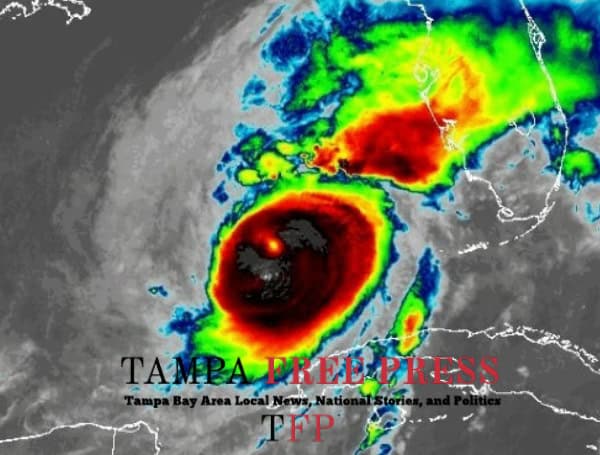With the official start of the 2025 Atlantic Hurricane Season just around the corner on June 1st, Florida officials are issuing a strong call to action: prepare now, not later.
Forecasts from leading meteorological institutions, including Colorado State University and Atmospheric G2/The Weather Company, indicate an “above average” season is likely, with predictions of 17-19 named storms, 9 hurricanes, and 4 major hurricanes.
“Last year’s active hurricane season demonstrated that hurricanes bring far more hazards than just wind and rain,” said FDEM Executive Director Kevin Guthrie. “From tornadoes to flooding, don’t wait to update your disaster plans—preparedness today means resiliency tomorrow.”
The message from state and local emergency management agencies, as well as organizations like the American Red Cross, is clear and consistent: proactive planning is the most effective defense against the devastating impacts of a hurricane.
READ: AccuWeather Warns Of Inland Flooding, Tornado Risks For 2025 Atlantic Hurricane Season
Know Your Risk and Develop a Comprehensive Plan:
Evacuation Zones and Routes: Understand your local evacuation zone and pre-plan multiple routes. Remember, you may only need to travel tens of miles, not hundreds, to reach a safer location.
Family Communication Plan: Establish designated meeting places, both in and out of town, and compile a list of emergency contacts, including utilities and critical services.
Sheltering Options: Beyond public shelters (which often have limited space and restrictions on pets), consider staying with friends or relatives outside flood-prone areas, or at a motel. If sheltering at home, identify the safest interior room.
Pets: Include your furry friends in your plan, noting that most public shelters only allow service animals. Research pet-friendly shelters or arrangements with friends/family.
READ: Hybrid “Super Termites” Establish Foothold In Florida, Raising Alarm Bells For Widespread Damage
Assemble and Replenish Emergency Kits:
Go-Kit (at least 3 days): Essential for evacuations, include non-perishable food, water (1 gallon per person per day), medications, cash, battery-powered or hand-crank radio, flashlights, portable chargers, hygiene products, and important documents in a waterproof container.
Stay-at-Home Kit (at least 7 days, ideally 2 weeks): For those sheltering in place, ensure you have sufficient food, water, a one-month supply of medications, and medical supplies.
Stock Up Now: Avoid the last-minute rush as storms approach, when essentials like gas, groceries, and batteries quickly sell out.
Strengthen Your Home:
- Home Hardening: Inspect your roof, windows, and doors for vulnerabilities. Consider installing storm shutters, impact glass, or reinforcing garage doors.
- Yard Cleanup: Trim trees and shrubs to remove dead branches, and secure or bring inside all loose outdoor items (furniture, decorations, trash cans) that could become projectiles.
- Elevate Valuables: Move important belongings to higher levels to protect against potential flooding.
Review and Secure Insurance:
- Insurance Check-up: Contact your insurance agent to ensure you have adequate coverage for your home and belongings.
- Flood Insurance: Remember that standard homeowner’s and renter’s insurance policies do not cover flooding. Flood insurance typically has a 30-day waiting period, so secure or update your policy now.
Stay Informed and Connected:
- Reliable Sources: Tune into trusted weather sources, local officials, and sign up for emergency alerts at FloridaDisaster.org/AlertFlorida.
- Battery-Powered Radio: Crucial for receiving alerts if power outages occur.
- Vehicle Preparation: Keep your gas tank at least half full during hurricane season to ensure fuel for evacuation. For electric vehicles, maintain battery capacity between 50%-80%.
As the 2025 hurricane season looms, Florida is emphasizing that individual preparedness is paramount. “It only takes one storm,” state officials remind residents.
By taking action now, Floridians can significantly enhance their safety and resilience in the face of potential hurricane impacts.
Please make a small donation to the Tampa Free Press to help sustain independent journalism. Your contribution enables us to continue delivering high-quality, local, and national news coverage.
Connect with us: Follow the Tampa Free Press on Facebook and Twitter for breaking news and updates.
Sign up: Subscribe to our free newsletter for a curated selection of top stories delivered straight to your inbox.

